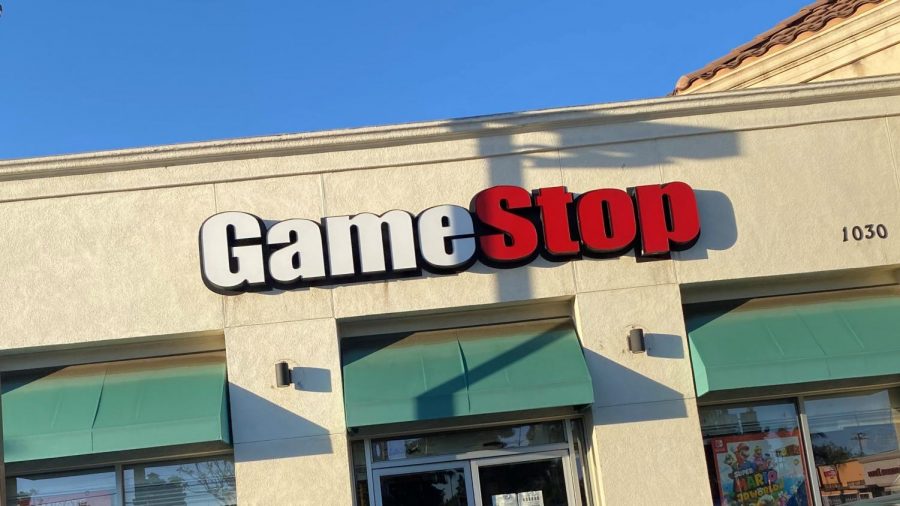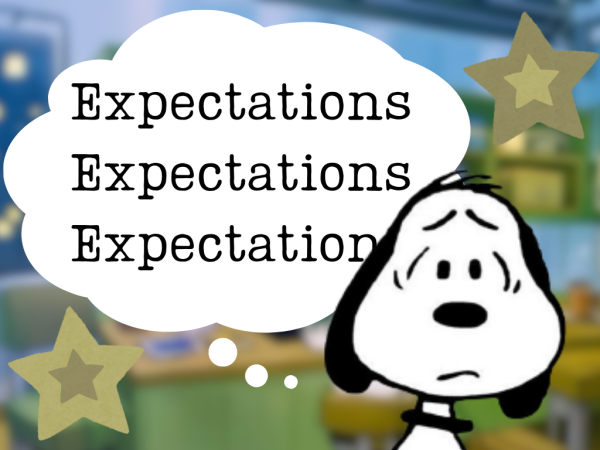What happened with GameStop stock and why the internet cared
The GameStop stock drama has the internet talking about how share values can be manipulated for monetary gain.
You saw it all over the internet. Everyone was talking about it. Trending on Twitter, the news; you couldn’t escape it, GameStop stock. Why did anyone care, anyway?
To have an understanding of what happened, you need to know what shorting is. Let’s say you ask a friend to borrow a coin, promising that you will return it. Well, he agrees, and you sell the coin for $100. A couple of months later, the coin’s value drops to $50, so you repurchase it. You return the coin to your friend, and you pocket the $50 difference.
Now with the stock market, you sell shares of stock you don’t own in hopes of the value of the stock dropping, buying at the lower price, and pocketing the difference.
As an anonymous student said, “So essentially the buyer (in this instance a hedge fund) will borrow stocks from a broker for a certain period on the condition that they will be returned with an additional sum of money.”
The story begins on Reddit forum r/wallstreetbets.
Around 10 months ago, in a now-deleted post, a member of the Reddit forum pointed out that 88% of shares were being shorted, mostly by professional/institutional investors over at Wall Street:
“IF YOU ARE LONG MAKE SURE TO CALL IN YOUR SHARES FROM YOUR BROKER AND MAKE SURE THEY AREN’T BEING SHORT-LENT (CALL YOUR BROKERS)”
It didn’t take long for the effects to come in. On the day of the post, GameStop stock rallied 22% and another 26% the day later.
As explained in a September Reddit post on r/wallstreetbets, all GameStop needed to do was hit $15 to trigger a short squeeze. This occurs when there is a spike in stock price that forces people who bet against it to buy back shares to cover their losses, resulting in an even bigger spike in stock price.
This cycle kept happening, and then the internet started to take notice. This led to even more day-to-day people like you and me buying shares in the company. This event was an unprecedented short squeeze that sent GameStop stock from its $3 lows in April, to a peak of around $480 on January 28.
There was also another event that you probably heard about involving investing app Robinhood, in which they restricted trading for GameStop stock. There was speculation that the app was getting paid by millionaires to do this, in hopes of stopping price surges. This led politicians to also comment about this situation, siding against this.
This begs the question, who cares? Why did the internet suddenly care about the stock market? Why were celebrities like Elon Musk talking about it?
As an anonymous student put it, “We see manipulation, in general, every day, however, something of this scale conducted by this many individuals is most likely going to be something that happens very rarely.”
As stated before, this was all started by a group of mostly millennials on the internet. This was your average group of people taking on multi-millionaires and billionaires, and succeeding. At the peak, an estimated $70 billion was lost by short-sellers. The people manipulating money and causing your average investor to lose money were complaining that the tables were turned on them.

I thoroughly enjoy drinking jamba juice, I'm a huge USMNT fan, and I have a horrible music taste.





































